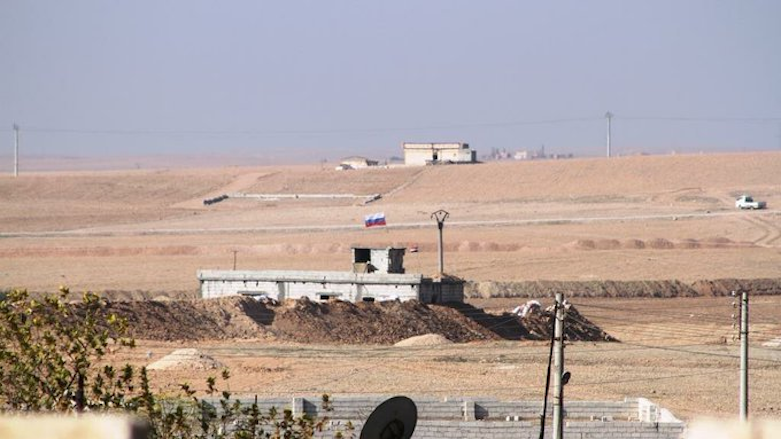SDF, Russia reach deal to prevent further Turkish attacks in Ain Issa
The Russians, the SDF, and the Syrian government have “agreed to establish three points…to reduce the violations against our people in Ain Issa and Ain Issa countryside.”

ERBIL (Kurdistan 24) – The Syrian Democratic Forces (SDF) have reached a deal this week with Russia and the Syrian government to establish three observation points near Ain Issa to prevent further Turkish attacks.
Riyadh al-Khalaf, the military council leader for Tal Abyad, said in a public statement to the media on Wednesday that Turkey’s “violations” against the Syrian Kurdish people have not ceased, but rather “have increased in November.”
As a result, he said the Russians, the SDF, and the Syrian government have “agreed to establish three points…to reduce the violations against our people in Ain Issa and Ain Issa countryside.”
On Monday, Asharq Al-Awsat reported that the Russians asked the SDF to allow the Syrian regime to control the security square in Ain Issa, just as in Qamishli and Hasakah where the regime controls the security square. However, reports suggest that only three points will be established in Ain Issa.
According to the UK-based Syrian Observatory for Human Rights (SOHR), the first post will be established in the eastern part of Ain Issa district, the second post will be on the M4 international highway, while the third one will be established in the western part of Ain Issa district.
These posts will be tasked with observing Turkey’s violations and bombardment of the area. The Russians have reportedly already established one observation point on the M4 and one northwest of Ain Issa to deter further Turkish escalation.
After Turkey conducted a cross-border attack into northeastern Syria in October 2019, Russia and the US reached separate ceasefire deals with Ankara, which allowed Turkish troops to control the area between Tal Abyad and Serekaniye.
Although US President Donald Trump initially decided last year to withdraw US forces from northeast Syria following a phone conversation with Turkish President Recep Tayyip Erdogan, he was later convinced to keep troops in the northeast to prevent the oil fields from falling into the hands of Iran or the so-called Islamic State.
As a result, there are still US troops in the Hasakah and Deir al-Zor regions, which contain the majority of Syria’s oil resources, even as the US withdrew from bases surrounding Kobani, Manbij, and Raqqa that were later taken over by the Russian military.
Despite the agreements, Turkish-backed groups and the Turkish army itself continue to target SDF-held areas periodically. In some cases, villagers living in Syrian-Turkish border areas were killed in attacks by the Turkish military and the rebel forces Ankara supports.
Civilians were also recently forced to flee their homes in Ain Issa after the increase of attacks in the area.
Thomas McClure, a Syria-based researcher at the Rojava Information Center, told Kurdistan 24 that Syria’s northeast, especially the areas where the US-led coalition left, are vulnerable to Turkish attacks, such as Manbij and Ain Issa.
“Ain Issa [is] taking the brunt of daily heavy shelling, which has cost the lives of at least four civilians, wounded many more, and driven out scores of families as refugees across the last couple of weeks with people fleeing south to Raqqa,” McClure said.
“This means a very real possibility that Turkey will launch [a] further operation and [try] to seize more land in any of these locations, particularly in the weeks leading up to Joe Biden taking office.”
He said the increase in Turkish attacks is an attempt to exert pressure and to seize the strategic town on the M4 highway, which has been the subject of dispute ever since Turkey’s October 2019 assault.
McClure said the increased Russian presence in Ain Issa might be a positive sign, but also a reminder that the town is under threat. “Neither the return of Syrian regime control nor another devastating Turkish invasion will be positive for the city.”
He underlined that the SDF and the local Kurdish-led Autonomous Administration of North and East Syria (AANES) are the only ones in the region that can provide a decent standard of security and human rights for civilians living under its care “despite constant pressure” from both the Syrian regime and Turkey.
Editing by Karzan Sulaivany